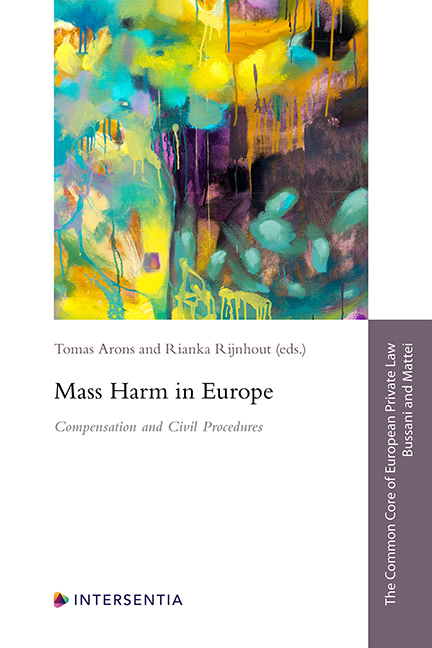Case 1: An Epidemic
Published online by Cambridge University Press: 03 April 2024
Summary
CASE
In a particular period of time, a disease, query fever, spread through the population. Query fever is known to spread from goats to humans by direct contact, or by contact with contaminated dust in the air. Farmers were under a statutory duty to vaccine their goats, but some of them did not. Many people fell ill, and a large group (> 1,000) developed chronic query fever and lost the capacity to work full time and therefore suffered loss of income. It is uncertain whether the government is liable because although ample evidence exists that it did not take preventive measures by adequate vaccine enforcement, it is uncertain whether those measures would have prevented the epidemic.
A group of plaintiffs suffering from chronic query fever demand compensation from both the government and the goat farmers. Will they receive compensation and, if so, for what losses? And is it possible to start a collective proceeding? If so, please indicate the most important bottlenecks in this particular case.
Please also indicate briefly in the ‘meta-legal formants’ if one or more compensation schemes have been developed that fully or partly compensate the victims of COVID-19.
DISCUSSIONS
AUSTRIA
Matthias Dangl and Georg E Kodek
Operative Rules
It would be possible to bring an action against the government based on the Public Liability Act (Amtshaftungsgesetz) as well as against the farmers based on general tort law (§ § 1293 ff Austrian Civil Code (ACC)). It would also be possible to start a collective proceeding, such as the ‘Austrian model of group litigation’ (as described in the Austrian section in the procedural rules chapter).
However, the case poses two difficulties from a substantive law perspective. The first difficulty for claimants is to prove causation. It is not clear whether a particular farmer’s failure to have his goats vaccinated caused a particular plaintiff to contract the disease, nor is it clear that stricter vaccine enforcement had prevented the epidemic. The second difficulty for plaintiffs, both for their case against the government and against the farmers, is the purpose of the statute requiring all goats to be vaccinated.
- Type
- Chapter
- Information
- Mass Harm in EuropeCompensation and Civil Procedures, pp. 107 - 150Publisher: IntersentiaPrint publication year: 2023

